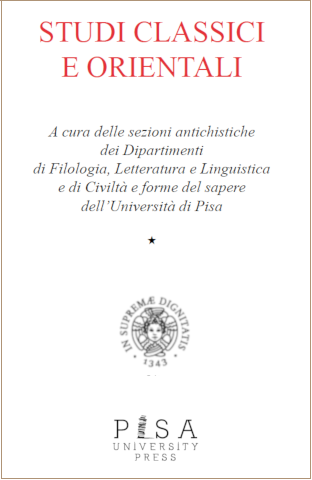Il galateo dell’intenditore. Nota a Luciano, Philopseudes 18
Abstract
The Connoisseur’s Etiquette. A Note to Lucian’s Philopseudes 18.
Lucian’s Lover of Lies explores the human propensity to superstition. Tychiades, the narrator, recalls a conversation about supernatural events held in the house of Eucrates. The host and his guests – a little group of gullible, self-styled philosophers – tried to persuade him of the efficacy of magic and the reality of wonders with a series of extraordinary tales. One of these is about a disease-healing, animated statue of Pellichus, which belongs to Eucrates’ art collection together with the replicas of well-known Classical masterpieces, including Polyclitus’ Diadoumenus, Myron’s Discobolus, and the Tyrant-Slay- ers by Kritios and Nesiotes.
In this section, the dialogue’s main concern about superstition intersects with the discourse on art, its methods, intellectual framework and terminology. The article explores how the ways in which the characters’ comments about art are instrumental to the construction of their identity. Eucrates, who purports to be familiar with art, instead is interested in only the most trivial aspects of realism, to the point of mistaking the striking resemblance to life with actual animation. In this dialogue, the rhetoric topos of realism is a tool to investigate the language of ekphrasis, thereby exposing the cultural and social premises of art criticism.


